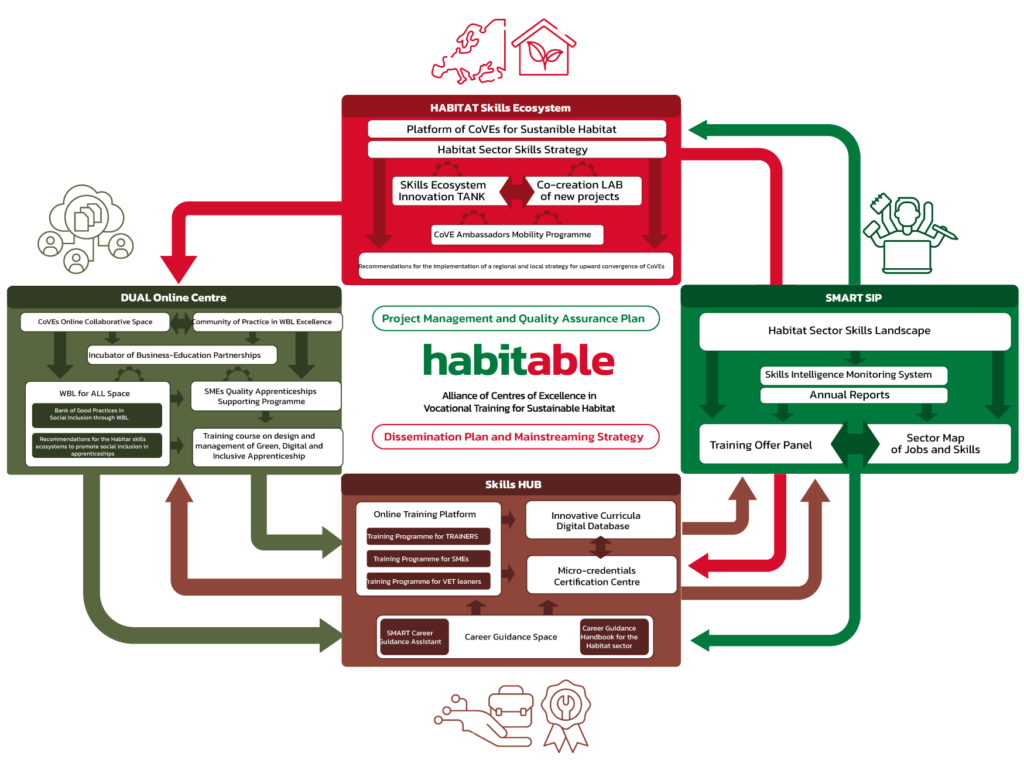HABITABLE project aims to respond to the challenges and needs of the Habitat sector in terms of skills shortage and mismatches derived from the digital and green transition, improving the responsiveness of VET systems to these changes while promoting inclusion and equity in education.
The project involves co-creating a Platform of Centres of Vocational Excellence for Sustainable Habitat, building a ‘skills ecosystem’ together with a wide range of other local and regional partners, working also with centres of professional excellence in other countries through networks of international collaboration.
To this aim, the partners are working towards the achievement of the following general objectives.
HABITABLE project is structured around
Digital transition
Green transition and skills
Equity and inclusion
Skills Intelligence
Dual VET
Skills Training, Certification and Guidance
Building the Skills ecosystems
The project implementation has relied on a structure of Work Packages (WP), with a balanced and efficient distribution of tasks and responsibilities among the members of the consortium:
Each of these functional Work Packages gathers a coherent set of activities, resources, tools and programmes to provide a combined solution to address the current needs and future challenges, in the respective areas, identified by the CoVEs of the consortium.
Additionally, each key functional area, and its corresponding Work Package, has been designed to reinforce and support the action of the others. The Work Packages 2, 3 and 4 are assembled in multifunctional online platforms that facilitate access and service to all the different resources developed in each of them: the SMART Skills Intelligence Platform in WP2, the DUAL Online Centre in WP3, and the SKILLS HUB in WP4.
The image below shows a graphical representation of the project structure and the connections between the different functional areas, Work Packages and results.

Funded by the European Union. Views and opinions expressed are however those of the author(s) only and do not necessarily reflect those of the European Union or the European Education and Culture Executive Agency (EACEA). Neither the European Union nor EACEA can be held responsible for them.
Project Number:
101104680-HABITABLE-ERASMUS-EDU-2022-PEX-COVE